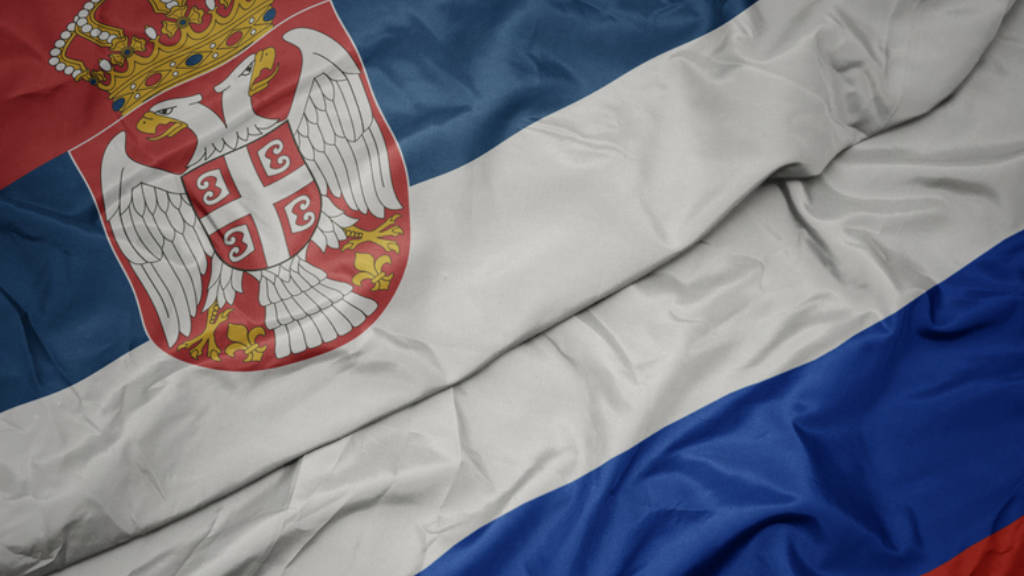The Kremlin spokesman Dmitry Peskov has stated that the BRICS is a more welcoming and member-oriented group than the European Union, commenting on the possibility that Serbia could seek to join the BRICS bloc. His comments came after Belgrade said that instead of EU membership, it would explore the option of joining BRICS, which is currently chaired by Russia.
Peskov stated that “Serbia has been having its arm twisted. The EU always lays down conditions for cooperation and demands certain actions. We are certain that instead, Serbia will make decisions that are most beneficial to its people.”
Serbia applied to join the EU in 2009 and has been a candidate for membership since 2012. But in an interview on Sunday, Serbian Deputy Prime Minister Aleksandar Vulin accused Brussels of moving the goalposts for accession, most recently by linking Belgrade’s membership to severing relations with Moscow.
Serbia’s largest export partners are Germany, Bosnia-Herzegovina, Italy, Hungary and Romania. Its main import partners are China, Germany, Russia, Italy, and Hungary. However, the Serbian capital, Belgrade, was bombed by NATO in 1999. An estimated 1,000 people were killed and 5,000 wounded.
The European Union also has a long history of promising eventual membership to other countries, but then stretching out the application process and leaving the countries concerned somewhat in a state of limbo and hindering their ability to look at other trade blocs – until the emergence of the BRICS bloc as a potential alternative. These include:
| Country | EU Membership Application |
| Albania | 2009 |
| Bosnia-Herzegovina | 2016 |
| Georgia | 2022 |
| Kosovo | 2022 |
| Moldova | 2022 |
| Montenegro | 2008 |
| North Macedonia | 2004 |
| Serbia | 2009 |
| Turkiye | 1987 |
| Ukraine | 2022 |
Of these, national elections are about to be held in Georgia and Moldova, both of which have strong views concerning a choice between relations with the EU or maintaining relations with Russia. Brussels is insisting they take sides when both would prefer a degree of neutrality given their ex-Soviet history and previous relations with Moscow. Ukraine should also have held elections earlier in the year however President Zelensky cancelled them in favour of maintaining his mandate. His Presidency expired in May this year.
Kosovo meanwhile is not fully recognised by several EU states rendering its application to join the European Union a political curiosity.
Peskov said that “BRICS does not impose any conditions on anyone. It’s based on mutual respect and the readiness to address the concerns and interests of members. No one there says ‘either, or.’ That’s why the group is so attractive to a raft of countries.”
That said, direct comparisons between the European Union structure and the BRICS are almost polar opposites. The EU has a strict intra-regulatory economic, trade, and legal protocol which all members must abide by. The BRICS in contrast is a far looser group, with members free to negotiate with each other in terms of trade agreements, an approach which in uncertain times means rather more flexibility. This can be illustrated in their respective GDP growth figures. The combined EU GDP growth 2024 rate is expected to be 1% in 2024; rising to 1.6% in 2025. The current BRICS countries (Brazil, China, Egypt, Ethiopia, India, Iran, Russia, South Africa, and the UAE) have an average GDP growth rate of 4.2% for 2024 and a forecast of 3.6% for 2025. That rate is four times higher than the EU during 2024 and despite a dip, still more than double the EU’s projected growth for next year.
Russian President Vladimir Putin said in September that the current BRICS states had agreed to discuss granting Partner Status to several aspiring members and to potentially approve some of the bids during the Kazan summit from October 22 to 24. If agreed upon, BRICS Partner status will become a new form of partial BRICS membership, intended to act as a gradual transition toward full integration into the group.
Azerbaijan, Algeria, Vietnam, Indonesia, Pakistan, Malaysia, Nigeria, Thailand, Venezuela, Kazakhstan, Palestine, DR Congo, Gabon, Bangladesh, Bahrain, Kuwait, Senegal, Cuba, Belarus, Bolivia, and Turkiye are among other nations that have expressed their wish to join BRICS.
In 2024, according to Statista the BRICS share of Global GDP has risen to 34.92%, while that of the G7 has dropped to 30.05%. Any further expansion of BRICS will widen this gap.
Further Reading
BRICS May Admit More Countries As Members: The Candidate Nations
Continue Reading





 Русский
Русский









